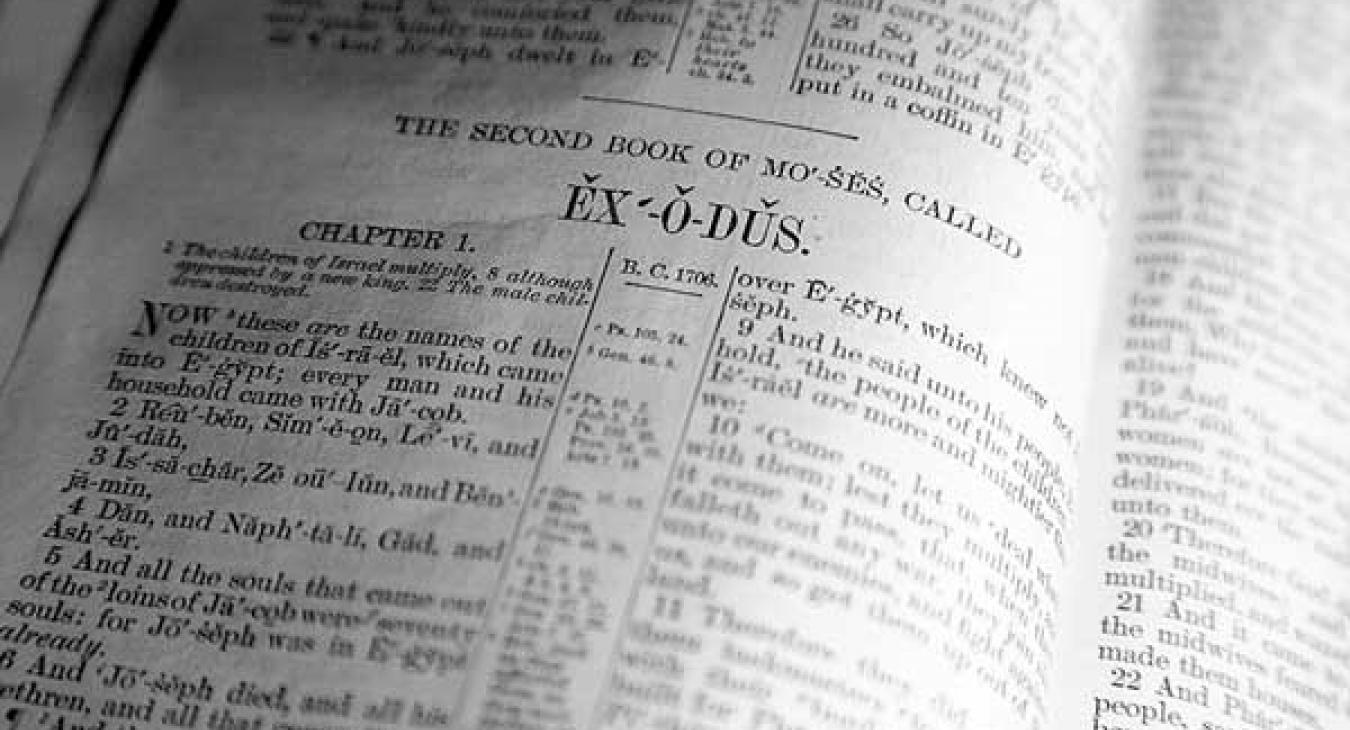From the Pastor’s Study
Study Serving and Worship Nov 3, 2021
In the book of Exodus, when Moses went to Pharaoh’s palace, he told Pharaoh that God wanted Pharaoh to release the Israelites so that they could go into the wilderness to worship him. The word that Moses uses is a common Hebrew word that can also be translated as serve. It was God’s desire that his people, the Israelites, serve him.
We recall the story that opens the book of Exodus. The Israelites were slaves in Egypt, serving Pharaoh. Their job was to make bricks our of straw and clay and water. Excavations in Egypt indicate that to complete Pharaoh’s building projects millions and millions of bricks had to be made. It was terrible work, and the quotas imposed on each worker were impossible to fill even though Pharaoh worked the Israelites ruthlessly. They served him. In another context the English translators might have said they worshipped him, for the Hebrew word can be translated either way.
God’s demand that Pharaoh allow the Israelites to leave to worship/serve him was much more than just a request that they attend a worship service in the wilderness. Rather, God was challenging Pharoah’s claim that he owned the Israelites, that he could do with them as he pleased. God was laying claim to the slaves, and he was demanding that they worship or serve him, not Pharaoh. From the first moment that Moses confronted Pharaoh, Pharaoh knew that God was claiming the people of Israel as his own, and Pharaoh probably already suspected that somehow God would challenge him in a very visible way, but Pharaoh believed he could stand up to any challenge. He was wrong, for through a series of 10 plagues God completely defeated Pharaoh.
There are at least two words in the Hebrew language that are translated to the English word, worship. The first, as we know already can also be translated as serve, and the second can be translated as bow down. The second, bow down, is used also to describe the action of a common person as he/she enters into the presence of a king. Literally bowing down was a way of showing that the king was the greater, more powerful person and that he was worthy of honour. Bowing down before God means the same. We bow down because we know that God is worthy of the honour signified by the act of bowing.
In the New Testament, which comes to us in the Greek language, there are also two words that can be translated as worship. The first is similar to the Hebrew, serve, while the second can also be translated as fear. We get our word, phobia (claustrophobia = the fear of small places; agoraphobia = fear of open spaces), from this word. Fear is meant to evoke response. Those who fear small, enclosed spaces will do their best to avoid them. Fearing the Lord, in the same way, also evokes a response, an appropriate action of some sort.
Our English word, worship, is less vivid and doesn’t always paint the same picture as the Greek and Hebrew words. Worship, in our time, tends to be understood to be something that is rather passive, and our worship services tend to be rather passive in nature. Almost everything is done for us, from the prayers to the reading of God’s Word, to the seeking of understanding that Word through the message. And, if rumours are correct, worship has become even more of a passive experience as some choose to stay at home and merely watch the worship service from the couch with a cup of coffee in hand. Except for singing (which not all do, sadly), worship services could be a completely passive experience. Our understanding of worship is very different from what the Hebrew and Greek words imply. Those are words which are either active in their very nature (serve, bow down) or result in action of some sort (fear).
Does that mean that we are worshipping incorrectly? Not necessarily, although being more active in our worship services might be helpful and more reflective of what worship actually is. Even if the nature of our worship services tends to be rather passive, it is our attitude that changes worship from being a passive experience that happens to us to an active experience that we engage ourselves in. The word, worship, is rooted in the idea that we are doing something to proclaim someone worthy. In other words, when we gather to worship, we do so with the understanding that we are acknowledging that God is worthy, that he has a claim on our lives, that he is greater than us, and that we are called to serve him. This is important, for it is easy to forget who God is and what he has done for us.
The communal worship services that happen on Sundays are only a small part of our worship. When we proclaim on Sunday that our God is worthy, that he is to be feared, that he has a claim on our lives, then on Monday and for the rest of the week, we actively engage in serving him. Working, schooling, raising our children, caring for our gardens – all of these can be considered acts of worship, of service. Our communal worship services may tend toward passivity unless we consciously engage ourselves in remembering and celebrating that God is worthy of our service and has made a claim on our lives, but our lives, as we live them beyond the hour or two of the worship service, should be marked by active service to our God.
All of life should be considered an opportunity to worship. Worship is service. Worship is bowing down before our King. Worship is fear that results in action. Worship is not an experience; it is active as we acknowledge the one who has a claim on our lives.
Pastor Gary

